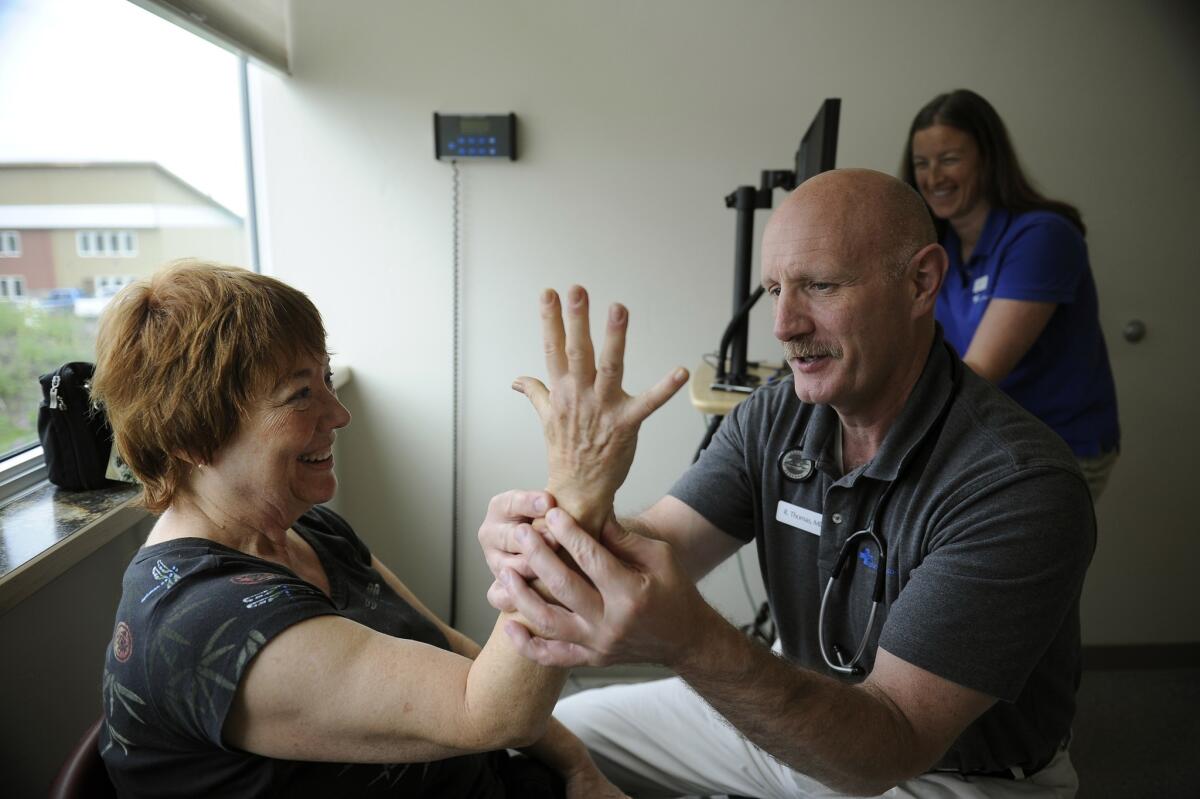Health spending grew 3.6% in 2013, slowest pace on record, U.S. says

- Share via
Reporting from Washington — Health spending in the U.S. grew in 2013 at the slowest rate ever recorded, a new government study indicates, marking the extension of a historic slowdown in medical spending that began after the last recession.
Total spending on healthcare increased just 3.6% last year to $2.9 trillion, according to the study from independent analysts at the Department of Health and Human Services. That is down from 4.1% in 2012 and way down from 2002, when health spending increased by nearly 10%.
The slowdown was driven in large part by sluggish economic growth, according to statisticians and economists who worked on the report, published in the journal Health Affairs.
But there is also some evidence that changes in the nation’s healthcare system, some brought on by the Affordable Care Act, are helping to restrain overall spending.
The health and human services agency each year analyzes how the nation spends money on healthcare. And though individual consumers may spend more or less annually as they switch insurance plans or need medical care, the report provides an overview of how the complex national system is performing.
The slowdown in health spending appears to have delivered real benefits.
Slower growth in the Medicare program, which provides government-subsidized insurance to some 50 million seniors and disabled Americans, has relieved pressure on the federal budget. The 2010 healthcare law and a subsequent budget deal worked out between the Obama administration and congressional Republicans mandates cuts to medical providers serving Medicare.
At the same time, premiums for commercial health insurance plans are increasing more slowly on average than in previous years, studies indicate.
High-deductible health plans, which have lower premiums, are exploding in popularity. And provisions of the health law require insurers to limit their administrative costs and to submit proposed rate increases to more scrutiny from government regulators.
All these factors are probably contributing to the slowdown, the authors of the report conclude.
But the analysts note that healthcare spending historically has tracked overall economic growth in the aftermath of previous recessions in the early 2000s and early 1990s.
The recovery from the so-called Great Recession that ended in 2009 has been relatively weak, with slow economic growth. That may be why increases in health spending have also been so modest, said Micah Hartman, the lead author of the new report
“The recent stability that we have seen in 2012 and 2013 is not something unexpected,” he said.
What is unclear is whether the slowdown will continue.
With millions of American gaining coverage this year through the federal health law, most analysts expect that overall health spending will increase in 2014.
Also unclear is whether consumers will ultimately see more benefits from the restrained spending growth.
For example, the growth in high-deductible health insurance plans threatens to saddle millions of Americans with high out-of-pocket medical expenses and may even lead to worse health if consumers put off needed medical care.
Twitter: @noamlevey
More to Read
Sign up for Essential California
The most important California stories and recommendations in your inbox every morning.
You may occasionally receive promotional content from the Los Angeles Times.














